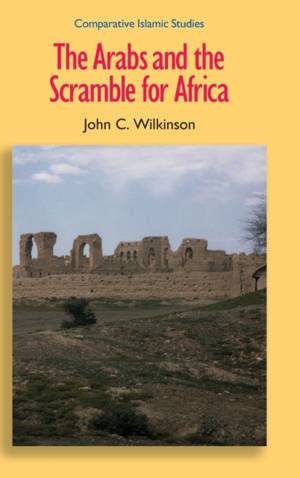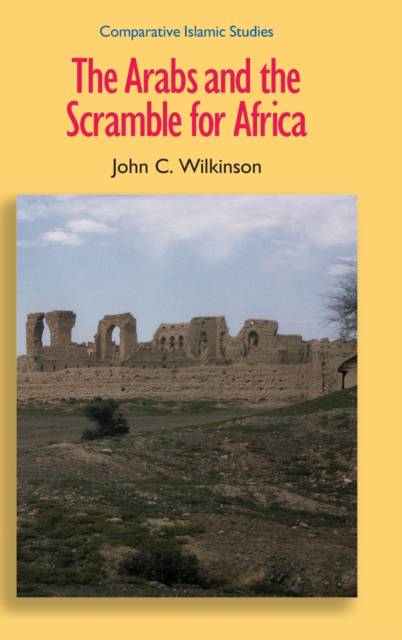
Bedankt voor het vertrouwen het afgelopen jaar! Om jou te bedanken bieden we GRATIS verzending (in België) aan op alles gedurende de hele maand januari.
- Afhalen na 1 uur in een winkel met voorraad
- In januari gratis thuislevering in België
- Ruim aanbod met 7 miljoen producten
Bedankt voor het vertrouwen het afgelopen jaar! Om jou te bedanken bieden we GRATIS verzending (in België) aan op alles gedurende de hele maand januari.
- Afhalen na 1 uur in een winkel met voorraad
- In januari gratis thuislevering in België
- Ruim aanbod met 7 miljoen producten
Zoeken
Omschrijving
This book examines the history of the European Scramble for Africa from the perspective of the Omanis and other Arabs in East Africa. It will be of interest not only to African specialists, but also those working on the Middle East, where awareness is now emerging that the history of those settled on the southern peripheries of Arabia has been intimately entwined with Indian Ocean maritime activities since pre-Islamic times. The nineteenth century, however, saw these maritime borderlands being increasingly drawn into a new world economy, one of whose effects was the development of an ivory front in the interior of the continent that, by the 1850s, led the Omanis and Swahili to establish themselves on the Upper Congo. A reconstruction of their history and their interaction with Europeans is a major theme of this book. European colonial rivalries in Africa is not a subject in vogue today, while the Arabs are still largely viewed as invaders and slavers. The fact that the British separated the Sultanates of Muscat and Zanzibar is reflected in European research so that historians have little grasp of the geographic, tribal and religious continuum that persisted between overseas empire and the Omani homeland. Ibadism is regarded as irrelevant to the mainstream of Islamic religious protest whereas, during the lead up to establishing direct colonial rule, its ideology played a significant role; even the final rally against the Belgians in the Congo was conducted in the name of an Imam al-Muslimin. Back home, the fallout from the British massacre that crushed the last Arab attempt to reassert independence in Zanzibar was an important contributory cause towards the re-founding of an Imamate that survived until the mid-1950s.
Specificaties
Betrokkenen
- Auteur(s):
- Uitgeverij:
Inhoud
- Aantal bladzijden:
- 496
- Taal:
- Engels
- Reeks:
Eigenschappen
- Productcode (EAN):
- 9781781790687
- Verschijningsdatum:
- 31/12/2014
- Uitvoering:
- Hardcover
- Formaat:
- Genaaid
- Afmetingen:
- 157 mm x 236 mm
- Gewicht:
- 879 g

Alleen bij Standaard Boekhandel
+ 370 punten op je klantenkaart van Standaard Boekhandel
Beoordelingen
We publiceren alleen reviews die voldoen aan de voorwaarden voor reviews. Bekijk onze voorwaarden voor reviews.









